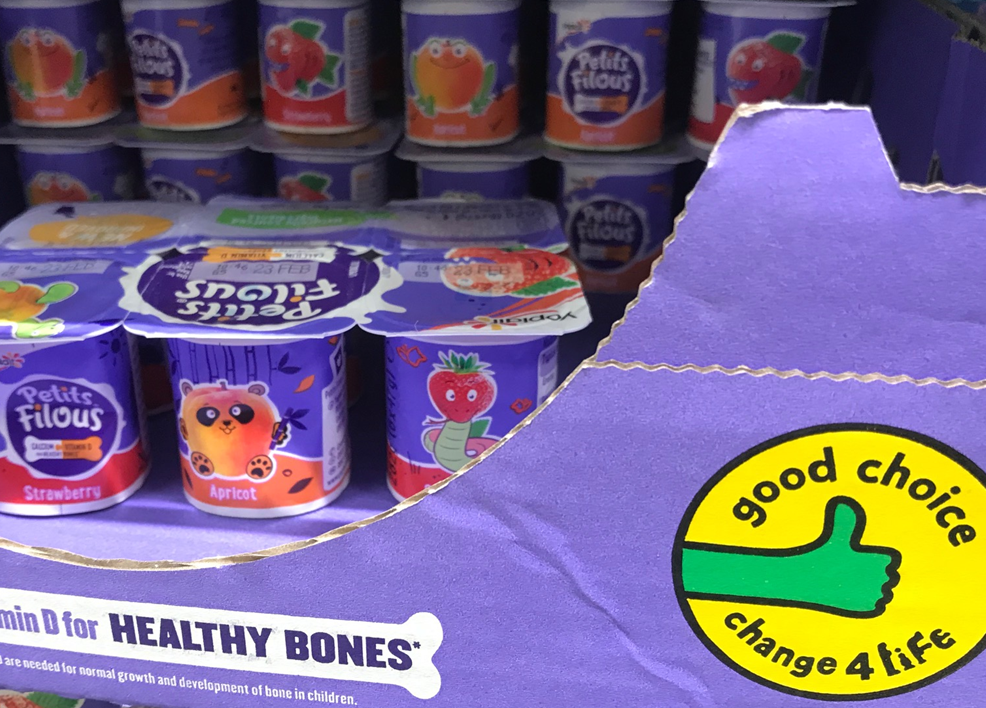January 2022
We hope you had a restorative Christmas break and the new year has got off to a good and healthy start. This month we have a bumper newsletter as promised. We share news on the DHSC’s new Better Health campaign and some thoughts on the Food Scanner App, news about the NICE Maternal and Child Nutrition guideline update and the latest on the DHSC consultation on the marketing and labelling of baby foods and drinks. In infant milk news we have some new supplements to make you aware of and we’re asking for your help, if possible, to recruit participants for our ‘Finding the Formula’ study. We also share with you news about a forthcoming ‘Policy Insight’ piece on what we perceive to be a baby-shaped blind spot in the National Food Strategy, and recommend a blog by our friends at Sustain, which provides a great overview of many of the important activities relevant to the food environment of young families forthcoming in 2022. We end with news of the happy arrival of our latest First Steps baby, Ava.
News
Launch of the DHSC’s new Better Health campaign and Food Scanner App
On January the 10th, the DHSC launched a new campaign to help parents improve their children’s diets, encouraging use of a new Food Scanner App. This campaign has been informed both by the shocking rise in childhood obesity and overweight captured by the National Childhood Measurement Programme (see our November newsletter), and by new statistics revealing the number of parents giving unhealthy snacks to their children (aged 5-11 years old) has increased during the pandemic.
The DHSC press release says: “The Food Scanner App works by scanning product barcodes and suggesting healthier alternatives to help the consumer make an easy swap. The app uses the ‘Good Choice’ badge to help signpost people to healthier food and drinks in line with the government’s dietary recommendations for added sugar, saturated fat and salt”.
We’ve tried using the app and whilst we appreciate it may be acceptable to parents because it suggests swaps between similar products with less sugar, saturated fat, and/or salt, we feel it is important to be aware of its limitations. For example, the swaps will have lower sugar, saturated fat and/or salt, but the level of these nutrients might not be low enough relative to children’s dietary reference values.
For example, these yoghurts contain 9.4g sugar/100g and 8.8g per serving, giving them an ‘amber’ traffic light label. In addition, suggested swaps are likely to be similarly processed (e.g. the app suggests lower sugar/less fatty/less salty ultra-processed foods, but the foods are still ultra-processed), rather than unprocessed or minimally processed foods, so there is no scope for the app to recommend fruits and vegetables as snacks.
Lastly, swaps may contain sweeteners in the place of sugar and no- or reduced- sugar products may qualify as a 'Good Choice' even when that qualification may seem clearly inappropriate (you can read more about this problem in our 2019 report on sweeteners: Sweet enough already: Artificial sweeteners in the diets of young children in the UK).
Fundamentally, the app suggests ‘healthier’ foods and drinks in terms of the specific three nutrients of focus but many such products would be hard to define as ‘healthy’, so our view is that the app would be best promoted to young families alongside and in the context of age-appropriate eating well messages, which can be found in our resources.
Updating of the NICE guideline on Maternal and Child Nutrition has commenced
The process of updating the NICE guideline on Maternal and Child Nutrition has started in earnest, with the first meeting of the guideline committee (on which our Director Vicky Sibson has been successful in gaining a place) taking place on 25th January. This guideline will fully replace the Maternal and Child Nutrition Public Health Guideline (PH11) (released in 2008 and last updated November 2014) and partially replace Weight Management Before, During and After Pregnancy (PH27) (released July 2010). Consultation on the scope of the guidance took place in October 2021 and the final scope was published on December 23rd and can be found here. The final guideline is expected to be released in November 2023.
An update on the DHSC consultation on guidelines for the marketing and labelling of baby foods and drinks
We are still awaiting this consultation (and the baby food composition guidelines), and given that there seemed to be a lack of clarity from DHSC about its likely scope when questioned late last year, we’re not sure if no news is good news... This is what the Parliamentary Under-Secretary (DHSC) Maggie Throup had to say about the consultation on December 20th: “Following the commitment in the ‘Advancing our health: prevention in the 2020s’ Green Paper, we plan to launch a consultation on measures to improve infant food marketing and labelling. This consultation will consider the marketing and labelling of all food and drink products for infants and young children up to 36 months. The objective is to ensure that commercial food and drinks products for infants are age-appropriate; aligned with dietary guidelines; and support healthy development. This includes ensuring parents and carers are equipped with clear, transparent and accurate product information that supports them to make healthier choices for their children. The consultation will be published shortly”.
As before, if anyone would like to see our consultation response prior to submission please feel free to get in touch at vicky@firststepsnutrition.org
Infant Milk News
New products
January has been a quiet month on the infant milk front; however, manufacturers have not been idle and Nestlé have stepped into the infant food supplements space with the launch of their “SMA Xpert” infant health range. The range includes two products, vitamin D drops and “ProCol”, a probiotic powder. These food supplements are designed to supplement either breast milk or formula milk in the first year of life and beyond and both products are currently available online only from Amazon.
The NHS recommend that babies who are being breastfed should be given a daily vitamin D supplement from birth. However, babies who are having more than 500ml (about a pint) of infant formula a day should not be given vitamin supplements as formula is fortified with vitamins A, C and D and other nutrients. Each daily dose of 2 drops of “SMA Xpert Vitamin D” contains 10 micrograms of vitamin D in line with Government recommendations.
It is important that healthcare professionals signpost women who may be eligible to the Healthy Start, or in Scotland, the Best Start Foods schemes which can provide them with free drops containing the recommended dose of vitamins A, C and D.
“SMA Xpert ProCol” is a probiotic supplement. Each sachet contains a minimum of 100 million units of the probiotic culture Limosilactobacillus reuteri. The supplement is marketed for use in either breast or formula milk.
Nestlé make the following claims on their website:
“L. reuteri† significantly reduces daily crying time in colicky infants by up to 78%”
“L. reuteri† supplementation has been shown to significantly reduce daily fussing times in infants with colic”
“When infants with colic are supplemented with L. reuteri† parents indicate improved family quality of life”
It is important to note that these claims relate to breastfed, or predominantly breastfed babies only and also that there are no independently agreed benefits for the addition of probiotics to breastmilk and the research cited is subject to considerable conflict of interest. Furthermore, breastmilk already contains probiotics which are absent from formula milk. No plausible mechanism of action for the observed amelioration of symptoms of colic in breastfed babies, but not formula fed babies, has been offered. EFSA (2014) have said that there is no benefit of the addition of probiotics to infant or follow-on formula.
Aside from our concerns about the evidence supporting use of this supplement, the manufacturer’s instructions for adding “ProCol” powder to breast or formula milk is that it should be added when the milk is lukewarm. We are therefore concerned that the addition of a non-sterile powder to formula at a temperature lower than 70⁰C may increase the risk of contamination.
We hope that health workers will dissuade families from choosing a product that is not needed by healthy infants. The NHS state that there is little evidence that probiotic supplements are effective in the management of colic and NICE guidance also advises that that probiotics should not be recommended for the management of colic due to a lack of evidence of efficacy.
Information for parents on managing colic can be found at www.nhs.uk
More information for healthcare professionals on management of colic and constipation can be found on the GP Infant Feeding Network Website www.gpifn.org.uk
Your help needed for our study: “Finding the Formula”
This UKRI and FSA-funded collaborative community science project being led by our friends at the Swansea University, is now well underway. This study is being developed with formula feeding parents/carers of babies under 12 months of age and is aiming to understand better real-life powdered infant formula preparation practices. We hope this will generate more data around the extent to which parents follow NHS guidelines (or use devices) and if not, why not. We need to recruit 200 participants who will be asked to complete a questionnaire documenting their typical bottle preparation practices and to undertake an experiment making up a feed and taking the temperature of the water used to do so with a thermometer provided by the study team. We would welcome your help with participant recruitment by sharing this link to our study Facebook Group.
Looking for information about infant milks? Check out our website www.infantmilksinfo.org. Still got questions about infant milks? Contact susan@firststepsnutrition.org
Forthcoming…
We await the government White Paper response to the National Food Strategy (or more precisely, the Final Report of the Independent Review for the promised National Food Strategy), which lays out a vision and plan for a healthier and more sustainable food system. But as outlined previously (see our September newsletter), we remain concerned about its baby-shaped blind spot which we believe makes it incapable of meeting its objectives. More specifically, we feel that it fails to acknowledge the particular food and nutrition requirements of babies and young children, and the factors which make eating well a challenge for many young families. The exclusion of England’s youngest citizens from the review is in our eyes, a missed opportunity that must be addressed, not least given the recent, devastating increases in childhood overweight and obesity prevalence documented in England and in Scotland too. Our director Vicky Sibson was asked to write about this for City University’s Food Research Collaboration Centre for Food Policy and her ‘Policy Insight’ will be published on February 8th. Keep an eye out on our website and social media and we’ll share it when it’s ready. Your help to raise this important issue with parliamentarians as the White Paper is developed would be much appreciated.
Final note:
For a fantastic overview of many of the important activities relevant to the food environment of young families forthcoming in 2022, we'd like to recommend this great blog by Barbara Crowther, the Campaign Coordinator of the Children's Food Campaign.
Baby News!
Our wonderful administrator Siân and her partner Robert welcomed baby Ava Malee into the world on December 23rd, describing her as the most perfect gift they could have ever hoped for 😊 She’s feeding brilliantly and we are raring for a cuddle.









